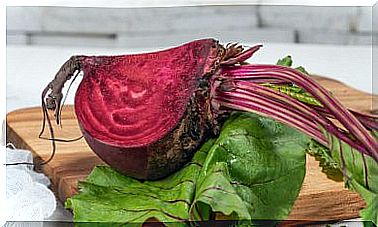Does Vitamin C Help Fight Allergies?
It is very common that annoying allergies come with the change of seasons, so we will show you how you can combat them by consuming vitamin C.

Vitamin C helps fight allergies because it is a powerful natural antihistamine and antiallergic. This makes the symptoms improve and, over time, the occurrences of future episodes decrease.
Taking care of allergies is very important, as they can be associated with more serious conditions such as sinusitis or asthma. They are not their origin, but they do complicate the development of these disorders.
It should be noted that the most common are seasonal allergies, which are produced by external factors such as accumulation of dust, pet hair, humidity or high concentrations of pollen. For the most part, they are produced by the changes of seasons, which brings about changes in the environment.
What is vitamin C?
Vitamins are of great importance for the proper functioning of the body. In particular, vitamin C or ascorbic acid is key to healthy skin, bones, and connective tissue.
It also has antioxidant properties that promote tissue regeneration and proper healing. In addition, it is essential in the production of collagen, as well as improving the absorption of minerals such as iron.
These functions in metabolism happen when the levels of the nutrient are adequate. The stimulus in the repair of lesions is explained by its effect on fibroblasts. These are the cells that make collagen, the major protein in the body and the one that supports the skin’s plumpness. Together with the antioxidant capacity, ascorbic acid has been associated with a slowing effect on aging.
So its consumption will not only allow you to fight allergies, but it will keep your whole body healthy and strong. The general nutritional effect of the substance has implications on the immune system that affect the action of white blood cells, involved in the mechanisms of reactivity against allergens.

What role does vitamin C play in treating allergies?
Vitamin C has been studied in order to determine its incidence in allergies, showing that it strengthens the immune system of people during allergic episodes of rhinitis. That is, it is an adjunct in the treatments applied for this disorder.
Thus, it has been identified that ascorbic acid produces a high amount of cytokines, a protein that helps cells control inflammatory reactions. At the same time, it stimulates T cells to fight infections that could be linked to allergies.
Now, talking about the way in which we can show how this vitamin fights allergies, we find that it has effects such as reducing nasal discharge, redness of the eyes and sneezing. These being the most common and annoying symptoms, whether they are seasonal or base allergic processes.
Adequate doses of vitamin C
Vitamin C helps fight allergies as long as it is consumed regularly and in the doses that the body requires. But don’t worry, you may be consuming it well without knowing it.
Ascorbic acid is present in many of the foods that we eat regularly. In particular, in vegetables such as parsley and broccoli and in fruits such as currant, strawberry, oranges, lemons, guava and kiwi.
Keep in mind that cooking or storing a food for a long time can lead to it losing its concentration of vitamin C. Therefore, it is ideal to consume raw fruits. For vegetables, steaming them will help.
The recommended dose of this vitamin depends on the stage of life in which the person is. Thus, an adult man should consume a total of 90 milligrams of vitamin C per day, while an adult woman should do so with 75 milligrams per day.
For their part, pregnant women, according to the World Health Organization (WHO), should ingest a maximum of 60 milligrams per day, although this dose may increase while breastfeeding.
Supplements with vitamin C
At present it is common to find different dietary supplements that contain vitamin C. They can be consumed if authorized by a family doctor.
The use of these supplements is recommended, especially, in those people who have difficulties to obtain the vitamin naturally. However, it is recommended not to exceed its consumption to avoid adverse effects such as gastrointestinal, that is, burning in the pit of the stomach, diarrhea, nausea and vomiting.

Vitamin C helps fight allergies
Vitamin C actually helps fight allergies, so be sure to eat a balanced diet that includes the fruits and vegetables mentioned. The success of this natural approach lies in its continuity, even when you are not suffering from an allergic episode.
In this way, you will reduce the allergic effects in winter and spring. Symptoms that have an impact on your quality of life will also be reduced. If you are asthmatic, all the more reason you should emphasize it.









